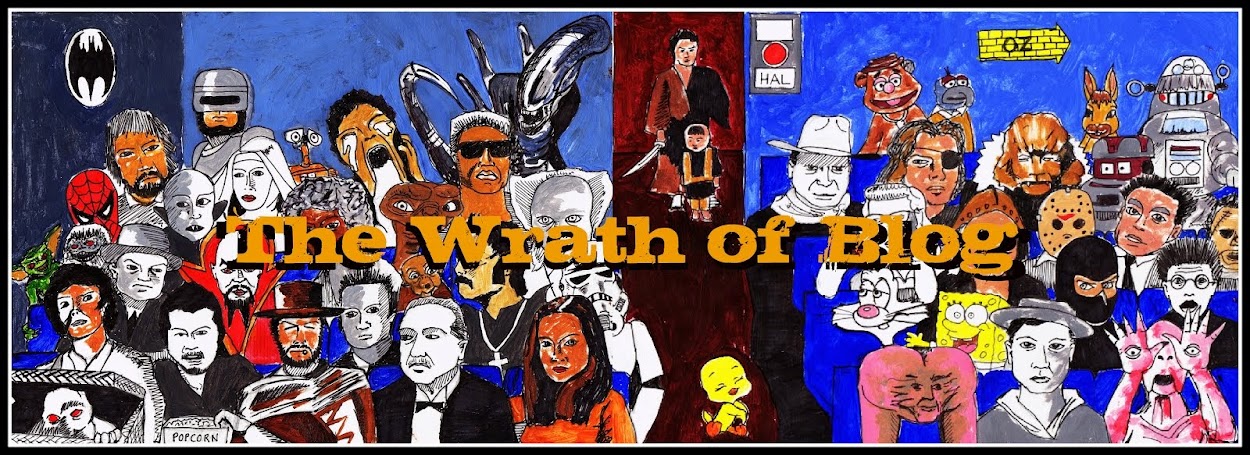 Punch-Drunk Love revolves around Barry Egan (Sandler), a troubled and socially-awkward salesman of toilet plungers and various other novelty items. Forever bedecked in a blue suit and red tie combination, Barry tries to keep to himself while harbouring a hatred for his inability to be 'normal', but his seven hen-pecking and overbearing sisters are constantly trying to 'bring him out of his shell'. Whenever his sisters mention the way they treated him as a child, he responds in a fit of rage. A family party is brought to a swift end when he kicks through patio doors after being reminded of a particularly cruel childhood nickname. He finds solace in a harmonium he finds dumped outside his work's warehouse, and eventually in an English woman named Lena (Emily Watson) introduced to him by his sister Elizabeth (Mary Lynn Rajskub). They like each other straight away, but she travels a lot, so Barry starts to take full advantage of a marketing loop-hole that will grant him a lifetime of air miles through purchasing mass quantities of cheap pudding.
Punch-Drunk Love revolves around Barry Egan (Sandler), a troubled and socially-awkward salesman of toilet plungers and various other novelty items. Forever bedecked in a blue suit and red tie combination, Barry tries to keep to himself while harbouring a hatred for his inability to be 'normal', but his seven hen-pecking and overbearing sisters are constantly trying to 'bring him out of his shell'. Whenever his sisters mention the way they treated him as a child, he responds in a fit of rage. A family party is brought to a swift end when he kicks through patio doors after being reminded of a particularly cruel childhood nickname. He finds solace in a harmonium he finds dumped outside his work's warehouse, and eventually in an English woman named Lena (Emily Watson) introduced to him by his sister Elizabeth (Mary Lynn Rajskub). They like each other straight away, but she travels a lot, so Barry starts to take full advantage of a marketing loop-hole that will grant him a lifetime of air miles through purchasing mass quantities of cheap pudding.Anderson is apparently fond of Sandler's work, so he obviously sees something in the actor whose success has left many of us befuddled. Sandler typically plays the same person: The childish slacker who is a nice guy deep down, but prone to outbursts of rage. He plays very much the same here, only he is likeable and sympathetic, delivering his best performance to date. When he isn't smashing up a restaurant toilet or bruising his hand on his office wall, Sandler is remarkably subtle, mixing up his words in a nervous tic and struggling to meet people's gaze. In his loneliness, Barry phones a sex-line and ends up on the receiving end of a blackmail scheme run by scumbag mattress-store owner Dean (Philip Seymour Hoffman). It's all over the place in terms of plot, but Punch-Drunk Love is very much a character piece built around a troubled yet fascinating man finally finding love in the chaos of his life and his own mind. It's an acquired taste, but far more accessible than some of Anderson's later work, especially The Master and Inherent Vice. We probably all know a Barry but have likely kept our distance, but Punch-Drunk Love is brave enough to place him front and centre, lending a voice to the type of introvert misunderstood and viewed with suspicion by most.
Directed by: Paul Thomas Anderson
Starring: Adam Sandler, Emily Watson, Luis Guzmán, Philip Seymour Hoffman, Mary Lynn Rajskub
Country: USA
Rating: *****
Tom Gillespie
















